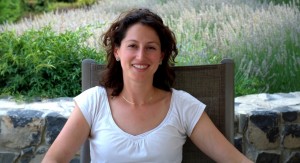By Athena Burkett, Wh, ‘13
When junior year came along, I had all the same fears as everyone else. “Where will I work this summer?” “How will I find an internship that guarantees me a job next year?” “What does it mean if I don’t get a job through OCR?” These questions and so many more wailed through my head as I relentlessly studied Case In Point and researched companies I had no real interest in working for. Being a Whartonite, I felt I needed to get a job through OCR, or else my schooling and work thus far would be for naught.
I was trapped in the OCR box, and was seeing the wonderful things inside it, but completely neglecting the opportunities outside its walls.
Deep down I knew that this wasn’t the path I wanted to take. Consulting and banking are great jobs, they just weren’t great for me. That summer I took an internship with PennSEM (a Penn non-profit internship program). It was a wonderful opportunity to do quality business work with a non-profit agency. I learned a lot that summer, the biggest thing being that I liked using my business knowledge in non-traditional settings. Just because I wasn’t working in banking or consulting, that didn’t mean I wasn’t using all the valuable knowledge Wharton gave me.
 Coming into senior year after that summer, I knew that OCR wouldn’t be my focus. I wanted to find a teaching job, so I decided to look through all the doors that Penn opens for its graduates. I scoured websites, went to Civic House and Career Services panels, attended NGO-Government Career fairs, and reached out to everyone I knew. Anything that came across my plate with the word “teach” or “non-profit” in it, I stopped to check it out. I placed myself on all the career list serves, and applied to a lot of teaching and non-profit leads I got through these sources. There are an incredible amount of resources available at Penn, but the key is to start early. It’s harder to do the research (there isn’t one nicely compiled database), but the process is the same – application, interview rounds, and (hopefully) offer. It’s well worth the work to find a job you really enjoy.
Coming into senior year after that summer, I knew that OCR wouldn’t be my focus. I wanted to find a teaching job, so I decided to look through all the doors that Penn opens for its graduates. I scoured websites, went to Civic House and Career Services panels, attended NGO-Government Career fairs, and reached out to everyone I knew. Anything that came across my plate with the word “teach” or “non-profit” in it, I stopped to check it out. I placed myself on all the career list serves, and applied to a lot of teaching and non-profit leads I got through these sources. There are an incredible amount of resources available at Penn, but the key is to start early. It’s harder to do the research (there isn’t one nicely compiled database), but the process is the same – application, interview rounds, and (hopefully) offer. It’s well worth the work to find a job you really enjoy.
I had come across the Urban Teacher Center program at an NGO fair in the spring of my junior year, and I saw it mentioned again in a lot of Civic House and Netter Center list serves. The program combines a dual masters degree with real time teaching experience, and it sounded perfect for me. I applied to their first deadline, and accepted an offer in October. Just like many of my peers, I could finally stop worrying about what I was going to do next year, and enjoy my senior year.
I think the most important connection for me was realizing that just because I was in Wharton, it didn’t mean I had to succeed through OCR or be a failure. A different path was just as valid, even if not as popular. There is a great deal of stigma attached to those who don’t get a job through OCR, as they are often believed to have lost a competition. But it is important to understand that those of us who choose not to participate in OCR are not straying from the Wharton path, we’re simply choosing to use our powers for a different purpose. If you’re questioning whether or not consulting and banking (and thus, OCR) are right for you, I encourage you to resist the pressure to stay in the box. There are amazing opportunities outside those four walls, and I promise that one of them is waiting for you to seize it.




